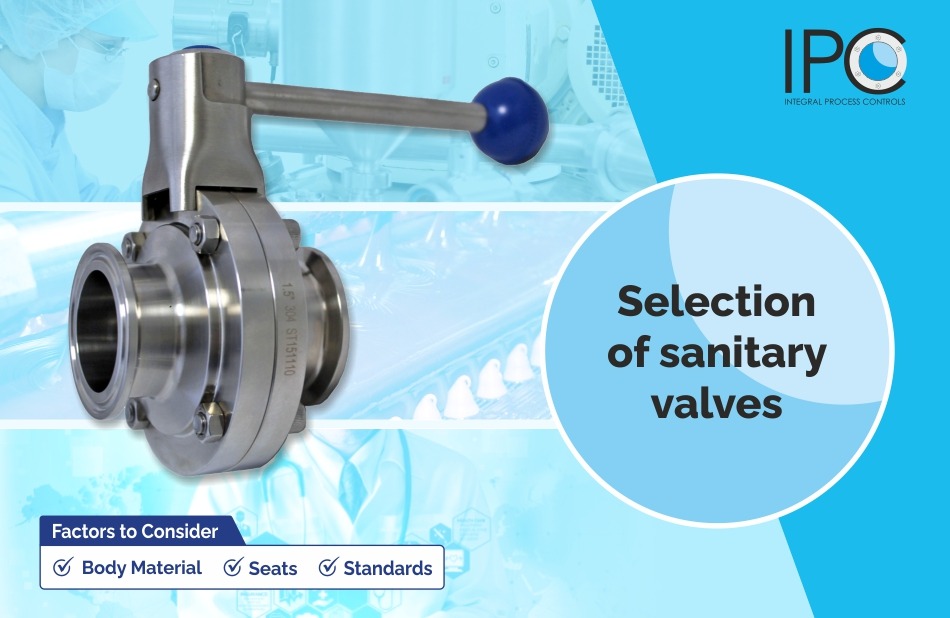The world of valves mimics the world of humans. In the human world, there are two types of’ jobs that are extremely sensitive and can make a difference of life and death. There are those of soldiers or policemen standing unflinching in harsh environments, and then there are doctors working in highly sterile conditions. When choosing a sanitary valve, it’s crucial to conduct a thorough analysis of the medium, process conditions, and control process parameters.
Sanitary Valve distinct design features
Despite the word sanitary in its name, a sanitary valve operates in applications where maintaining a highly clean and sterile environment is critical. Sanitary valves process the media that is used for biological consumption. Hence, the requirement for high cleanliness. Sanitary valves feature a distinct design to enable working in super-clean environments.
Sanitary valves distinct design features of
- Absence of crevices or cavities to avoid trapping the media on which bacteria can grow
- Wetted surfaces that come in contact with the media are polished
- Maximum possible radius size to avoid clinging or entrapment of the media
- Butt welds, threads, flanges, and clamps to prevent external contamination
- Aseptic design for better cleanliness
Factors impacting sanitary valves selection
The training of a soldier and that of a doctor differ as per the sensitivity of their job. If you apply the criteria of what makes the best soldier for choosing a doctor (and visa versa), there would be a disaster. Along the same lines, the criteria for choosing sanitary valves differ significantly from those to judge other industrial valves.
Body material
Low carbon Stainless steel is the most preferred material for sanitary valves. This is because only steel has the capability to meet the high cleanliness norms set by regulations. Materials such as iron or copper cannot satisfy the sanitary hygiene conditions set for these valves.
Seals
Sanitary valves are generally soft-seated. They use O-rings, seals, and seats made from soft yet abrasion-resistant materials.
Standards
Standards matter all the more for sanitary valves, given they process media meant for human consumption. A number of ASME, MSS, and API standards apply to sanitary valves.
Conclusion
Given the importance of hygiene in sanitary valves, they demand highly polished production in line with health standards. An experienced valve manufacturing expert could be the key to obtaining durable, reliable, and standardized sanitary valves for your application.
IPC valves has 10+ years of experience in manufacturing ball valves and butterfly valves in line with global standards. Although we have not yet undertaken the manufacturing of sanitary valves, IPC shares information about all aspects of valve selection, use, and maintenance under its customer awareness initiatives.
IPC offers customized, automated valves and process solutions in a short lead time while enabling the customer to trace the valve throughout the manufacturing process and monitor its testing for assured quality.

